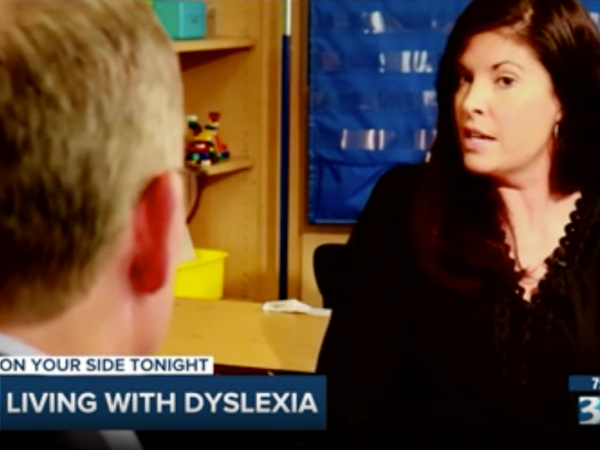Fletcher in the News

WBTV's On Your Side Tonight with Jamie Boll interviewed Dr. Tara Terry and Fletcher alumna and parent Mrs. Perrin Hedgepeth about how The Fletcher School is helping children learn with dyslexia. Click here to watch the interview.
During the pandemic, some parents noticed when their children were learning from home that they were struggling with some of the basics of reading. It's estimated 15 to 20% of the population has a language-based learning disability. One of the most common is dyslexia, with an estimated one in 10 living with that disorder.
Key Takeaways from the Interview:
Mrs. Perrin Hedgepeth struggled as a child to find a learning environment that worked for her until The Fletcher School. At Flecher, she discovered she just learned differently. And she teaches the same lesson to her son who is at Fletcher--that we're all originals.
Dr. Terry shares how Fletcher's 6:1 student-teacher ratio enables teachers to know each student and their learning styles.
Each student has their own learning plan that their teacher has helped develop with parents' and colleagues' support.
The way Fletcher's faculty teach is sequential and structured. Everything is mastery-based, and the teacher only moves on to the next skill once a student has mastered the one before.
Early intervention is best. When parents see warning signs, they can start the remediation process. When students are diagnosed with dyslexia, it often means they have had to problem-solve in different ways.
Dr. Terry shares, "What we do is beginning in second grade, you need an official diagnosis to come to school here. But in kindergarten and first grade, we're really looking for those early warning signs--trouble rhyming, trouble learning the alphabet, trouble recognizing their name, and is there a family history of struggling with reading and writing? And for those students, we think we know that early intervention is best. So we think if we get them in early, we can help them before they need that official diagnosis."
There does appear to be a genetic component to dyslexia. If a parent has it, there's a roughly 50% chance that the child will as well.
Mrs. Hedgepeth's son started in public school in Charlotte, but she began noticing some of the same struggles she dealt with when she brought him to Fletcher as a first grader. She shares, “It's amazing. You know, you had a child that would go to school that was sad and crying, and homework was a nightmare. There were lots of tears, and now it's completely different. His confidence is back, and he's excited. He always wants to come to school. We've seen it in so many different aspects.”
